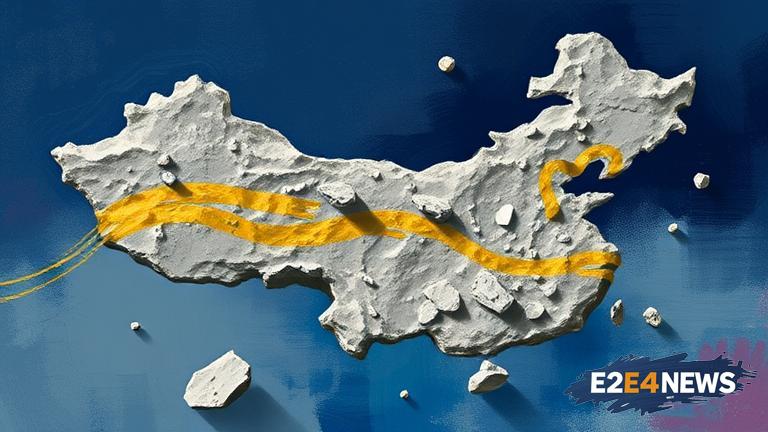China, the world’s largest producer of rare earth elements, has recently issued quotas for the production and export of these critical materials for the year 2025. This move is seen as a strategic effort to tighten its grip on the global supply chain, particularly for the electric vehicle (EV) industry, which relies heavily on rare earths for the production of motors, batteries, and other components. The quotas, which were issued quietly, have significant implications for the global market, as China currently dominates the production of rare earths, accounting for over 60% of the world’s total output. The move is expected to impact the supply chain for EV manufacturers, who are already facing challenges in securing stable and reliable sources of these critical materials. Rare earths are a group of 17 elements that are essential for the production of a wide range of high-tech products, including EVs, wind turbines, and advanced electronics. China’s control over the rare earth supply chain gives it significant leverage in the global market, allowing it to influence prices and availability. The quotas are also seen as a response to the growing demand for rare earths, driven by the increasing adoption of EVs and other clean energy technologies. As the world transitions to a more sustainable and low-carbon economy, the demand for rare earths is expected to continue to rise, making China’s control over the supply chain even more critical. The US and other countries have been trying to reduce their dependence on Chinese rare earths, but so far, they have made limited progress. The issuance of the 2025 quotas is seen as a clear signal that China intends to maintain its dominance over the rare earth supply chain, at least for the foreseeable future. The move is likely to have significant implications for the global economy, particularly for industries that rely heavily on rare earths. Companies that are dependent on Chinese rare earths may need to reassess their supply chains and look for alternative sources, which could be a challenging and costly process. The Chinese government has been actively promoting the development of its rare earth industry, providing support for research and development, and encouraging the formation of strategic partnerships with other countries. The country’s rare earth industry is expected to continue to play a critical role in the global market, and the issuance of the 2025 quotas is seen as a key step in solidifying China’s position as the world’s leading producer of these critical materials. The quotas are also expected to have significant environmental implications, as the production of rare earths can have negative impacts on local ecosystems and communities. As the demand for rare earths continues to rise, there will be a growing need for sustainable and responsible production practices, which could become a major challenge for the industry. Overall, the issuance of the 2025 rare earth quotas is a significant development that highlights China’s ongoing efforts to maintain its control over the global supply chain, and the implications of this move will be closely watched by industries and governments around the world.
